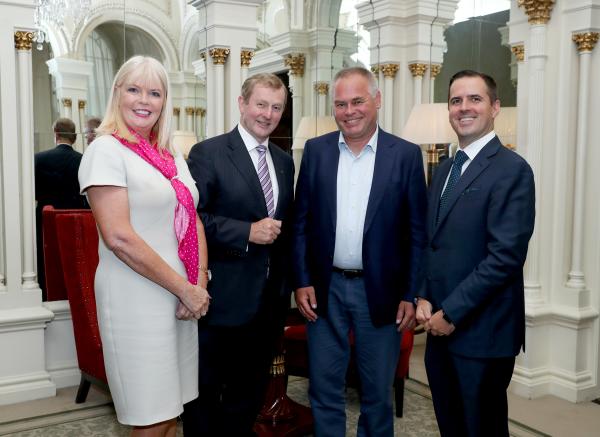Kaspersky Lab opens R&D office in Ireland to enhance its enterprise portfolio
7th September 2016

Kaspersky Lab Announcement
Global cybersecurity company Kaspersky Lab has today announced the opening of its first European research and development (R&D) center, in Dublin, Ireland. The location was selected on account of Dublin’s growing reputation as a major European tech hub, providing access to a highly skilled IT talent pool and a strong network of innovative technology companies. With an initial investment of close to USD$5 million, Kaspersky Lab plans to create 50 new Dublin-based roles in the next three years.
The new office will focus mainly on developing data analysis and machine learning technologies for the company’s enterprise solutions offering. The team will be responsible for core parts of new Kaspersky Lab solutions, focused on targeted attack detection and investigation.
Kaspersky Lab has appointed Keith Waters as Head of Engineering, to lead the development team in Ireland. Keith graduated from University College Dublin with a degree in Computer Science. He has more than 15 years’ experience building enterprise big data analytics products and delivering solutions to global customers.
Nikita Shvetsov, Chief Technology Officer at Kaspersky Lab said: “Dublin was an obvious choice for the company’s first European R&D office, owing to the quality and density of tech talent there, and of course, the city’s vibrant and appealing living conditions. Locating the office in Dublin is a great opportunity for us to increase our collaboration with other international IT companies, especially as the city is becoming known as the Silicon Valley of Europe. We would like to thank IDA Ireland for their great support with the office opening.”
Making the announcement, An Taoiseach Enda Kenny TD said: “The decision by Kaspersky Labs to establish a key part of their operation here in Ireland represents a vote of confidence in our talented workforce, our economy and our business environment. Today’s announcement creates 50 highly-skilled jobs which will deliver a world-class 21st Century product from Dublin. It is also an endorsement of Ireland as a hotbed for cybersecurity research, and a signal to other companies seeking skilled software programmers and data scientists. The breadth and scope of the skills needs in this area are well recognized by Government and the new Strategy for Education and Skills will seek to ensure that IT and digital skills are a key part of all levels of the education system.”
IDA Ireland’s CEO Martin Shanahan said: “Ireland is a leading location for companies dedicated to fighting cybercrime. The top five worldwide security software companies in this sector now based here. The “collaboration culture” that exists here between industry leaders and research centres is enabling Ireland to develop as a world class cybersecurity practice and innovation hub. Today’s announcement by Kaspersky Lab will strengthen Ireland’s business ties and open doors to attract further investment by Russian companies. I would like to wish Eugene and Kaspersky Lab every success with its new Irish operation and they have the continued support of IDA Ireland.”
Kaspersky Lab addresses all the IT security needs of large organizations, with a full enterprise platform that helps to prevent cyberthreats, detects even the most sophisticated attacks, responds to security incidents, and predicts the evolution of the threat landscape. Moving forward, the company will continue to enhance its enterprise offering, addressing sophisticated threats with security intelligence, technologies and services. To implement these plans, Kaspersky Lab is increasing its headcount and creating about 400 additional roles across the world in 2016, most of them in R&D.
